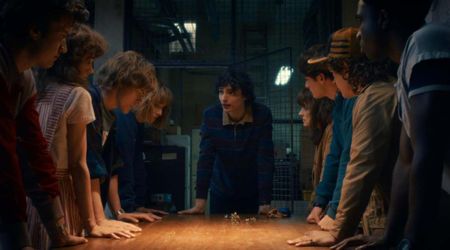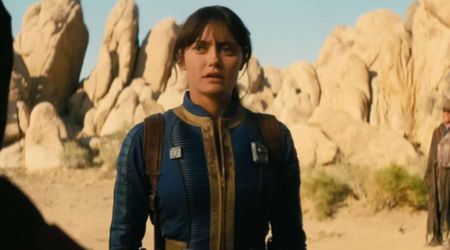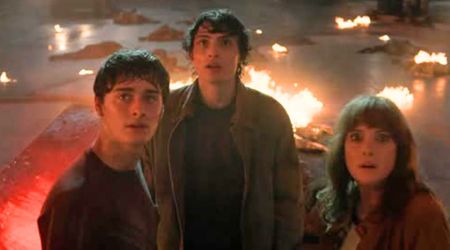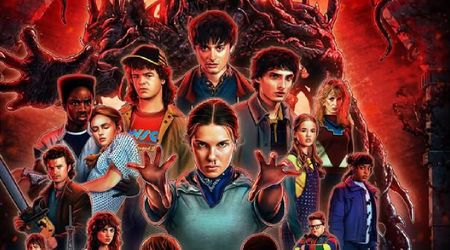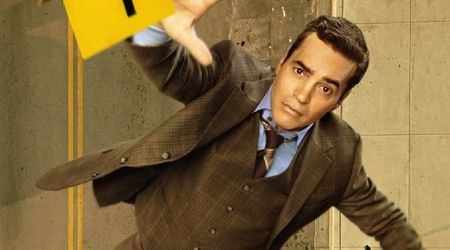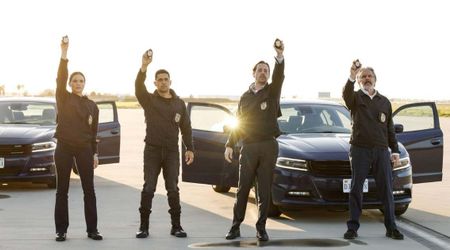'#FreeRayshawn' is a modern take on the iconic 1975 film 'Dog Day Afternoon' and it has a lot to live up to

Jeffrey Katzenberg, the founder of the short-form mobile video platform Quibi, at its official unveiling, mentioned that filmmaker Antoine Fuqua of ‘Training Day’ fame was developing a project that he described as a modern-day version of the 1975 American neo-noir crime drama ‘Dog Day Afternoon’. That project is the upcoming series called ‘#FreeRayshawn’.
‘Dog Day Afternoon’ is one of the American Greats, to say the very least. Starring Al Pacino, John Cazale, James Broderick, and Charles Durning, the film follows the story of a bank robbery that soon turns into a hostage situation that in turn becomes a media frenzy. It’s a film that has intense political and social messages.
It’s not your regular heist film. It’s a movie that examines human connections. One particularly dark yet endearing scene, very early on in the film, is when cops are in the process of surrounding the bank and a young teller gets a call from her husband. In between tears, visibly scared of the situation, she tells her husband on the phone to cook whatever he wants for dinner.
One of the film’s most iconic sequences shows Pacino outside the bank, shouting at the cops, the negotiator, everyone surrounding the bank. Brandishing a gun, a visibly-angry Pacino refers to the 1971 Attica Prison uprising where prisoners demanding better living conditions and political rights, rioted and took control of the prison, taking 42 staff members hostage. It is widely considered as one of the most well-known and significant uprisings of the Prisoners' Rights Movement in U.S. history.
He shouts “Attica-Attica-Attica” to cheering crowds who had gathered to see the drama unfold. He shouted at the negotiator that had the TV cameras not been on, he would have been shot already. It’s one of the most defining moments of the film for many reasons. For one, it is an examination of crime from a media lens. Public crimes demand audiences, and while Pacino’s character did not expect the situation to ever come to that, he was certainly glad for it on some level.
The other important aspect of the scene is the cheering crowd. The working class and the police have never been on the same side. Police brutality has been a historical feature of the institution and the crowd’s cheers only affirm the idea that they would rather support a renegade, a rebel, an anarchist, trying to break free from the system, than supporting the quote-unquote custodians of law. Anti-establishment is as political as anything gets.
Another important aspect of the film is its queer legacy. Pacino’s Sonny in the film is a homosexual man. His partner is Leon Shermer (Chris Sarandon), a trans woman who is unable to afford sex-reassignment surgery. While the queer history of the film is seldom discussed, it nonetheless important to consider its sheer significance in the context of the 1969 Stonewall riots.
As a modern-day reboot of this iconic work of art, ‘#FreeRayshawn’ sets itself up for a very uphill battle. Merely setting a story around a hostage situation and police negotiations would not cut it. That would barely scratch the surface. For it to live up to Sidney Lumet’s classic, it has to explore the subversions it engaged in.
This is not to say that ‘#FreeRayshawn’ doesn’t have the scope for it. Like Pacino’s Sonny, Stephan James’ Rayshawn is a war veteran (the former, Vietnam, and the latter, Iraq). If the former had the stigma of sexuality attached to him, the latter has racism to deal with.
Police shootings and brutality are everyday realities for persons of color, especially African-Americans. The show itself bases the conflict around the eponymous character being framed by the cops. The hashtag FreeRayshawn brings to light the power of social media in the face of imminent injustice. And the show’s trailer indicates that despite a kind of media fatigue over cases of police brutality and violence, communities are seldom prepared to give up. The anti-establishment trait is visible there, straight from NWA songs to the Ferguson riots to near-daily videos on Twitter documenting the institutional racism of the police force.
In every respect, ‘#FreeRayshawn’ has the potential to be a modern ‘Dog Day Afternoon’. The only question is: Will it?
‘#FreeRayshawn’ is slated to release on April 13 only on Quibi.


